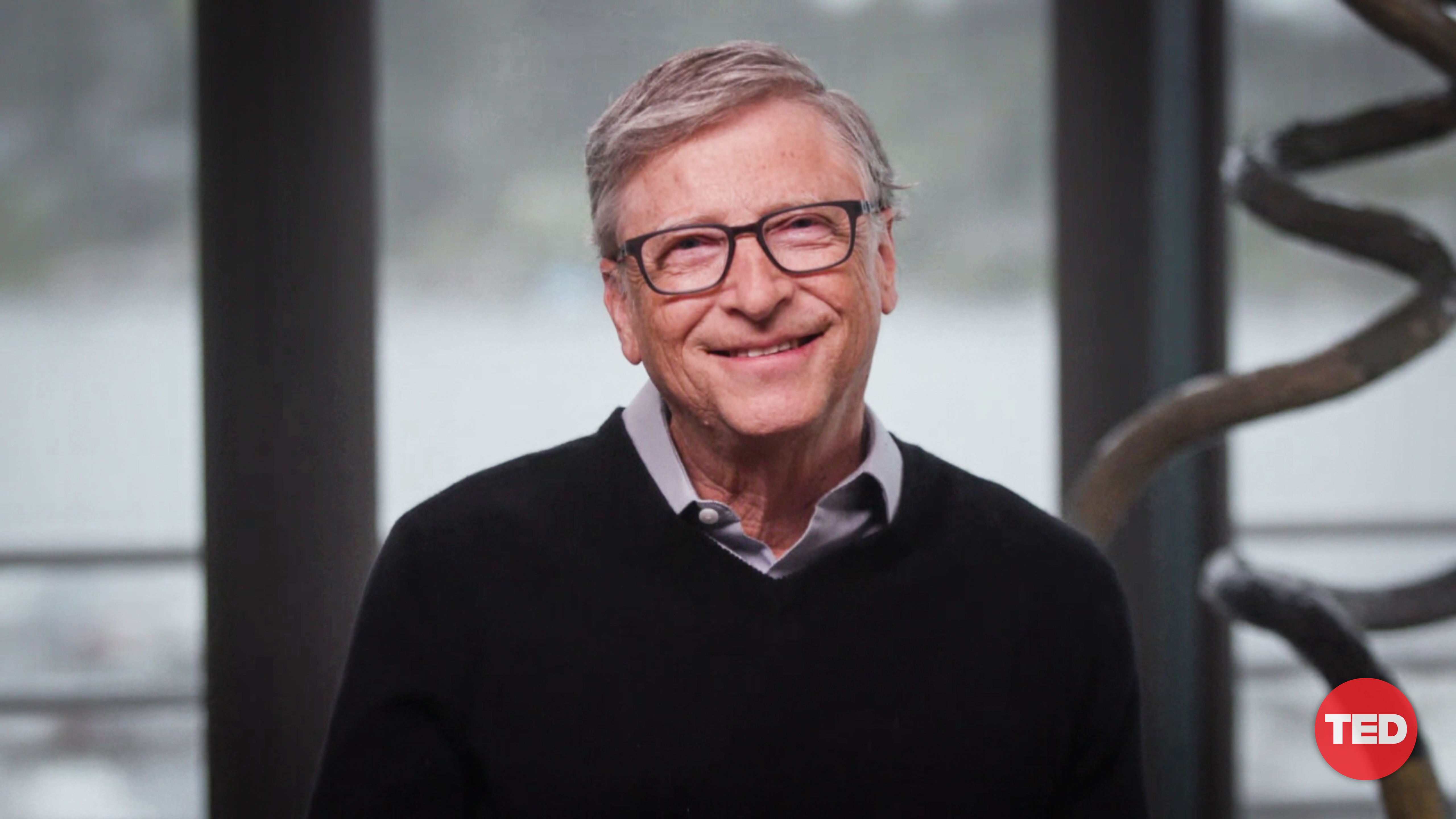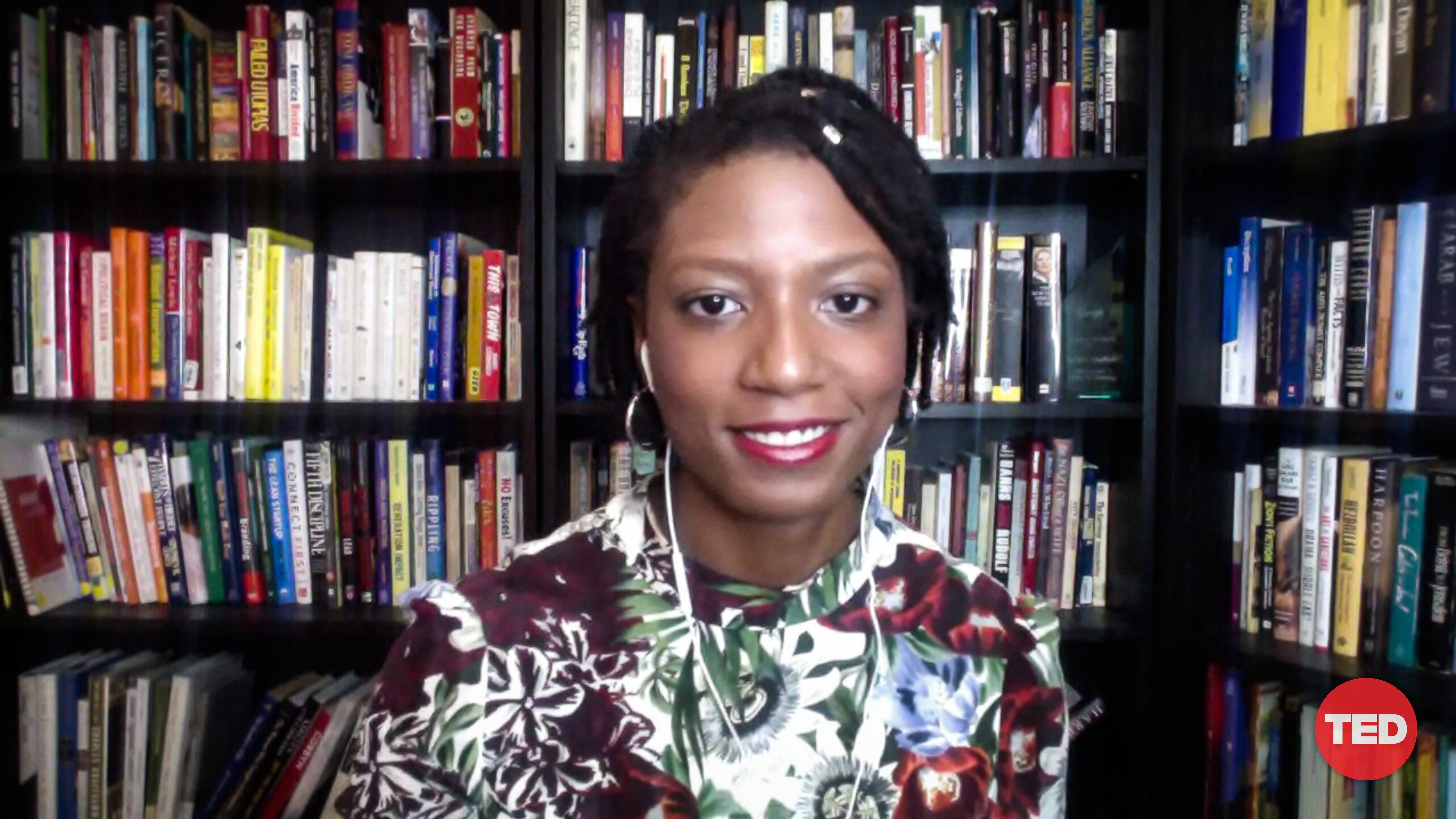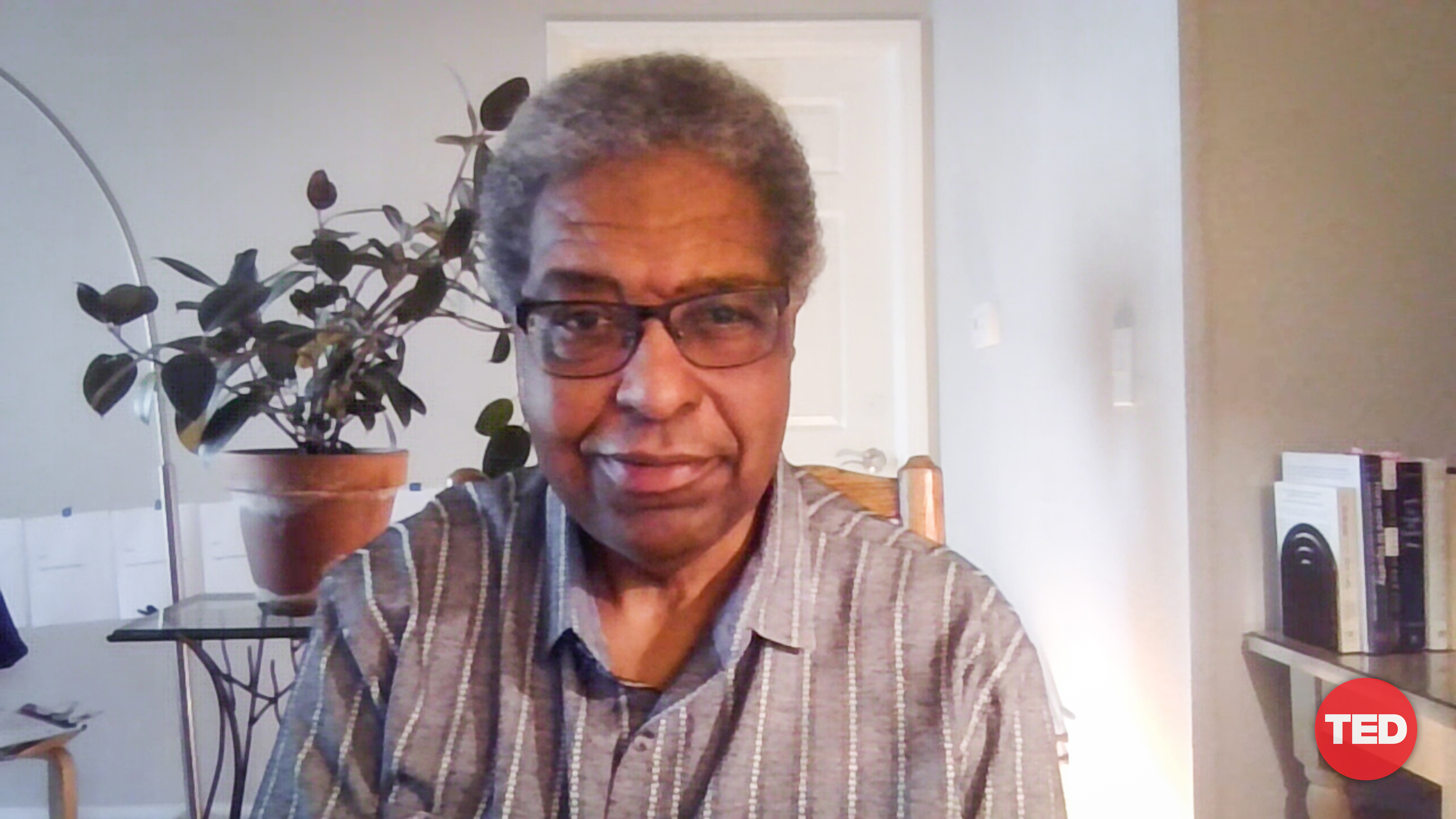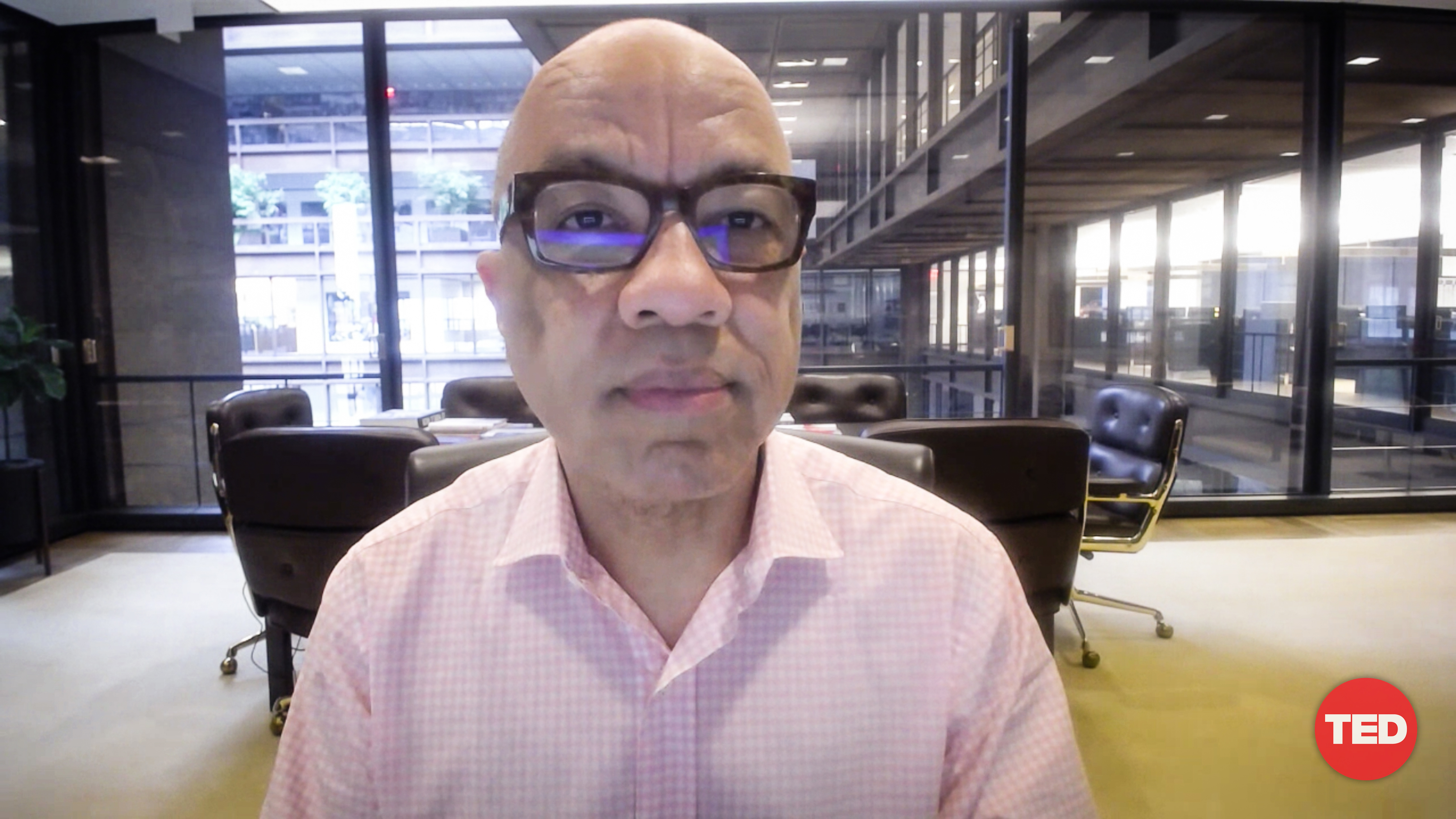Week 7 of TED2020 featured conversations on where the coronavirus pandemic is heading, the case for reparations, how we can better connect with each other and how capitalism must change to build a more equitable society. Below, a recap of insights shared throughout the week.

Bill Gates discusses where the coronavirus pandemic is heading, in conversation with head of TED Chris Anderson at TED2020: Uncharted on June 29, 2020. (Photo courtesy of TED)
Bill Gates, technologist, philanthropist
Big idea: The coronavirus pandemic isn’t close to being over, but we’re making scientific progress to mitigate its impact.
How? Bill Gates talks best (and worst) case scenarios for the coronavirus pandemic in the months ahead. This fall could be quite bad in the United States, he admits, as there is speculation among researchers that COVID-19 may be seasonal and its force of infection will increase as the weather cools. But there’s also good progress on the innovation track, he says: the steroid dexamethasone was found to have benefits for critically ill patients, and monoclonal antibodies seem promising, as well. In short: we’ll have some additional support for the fall if things do indeed get worse. Gates also explains the challenges of reducing virus transmission (namely, the difficulty of identifying “superspreaders”); provides an update on promising vaccine candidates; offers his thoughts on reopening; takes a moment to address conspiracy theories circulating about himself; and issues a critical call to fellow philanthropists to ramp up their action, ambition and awareness to create a better world for all.

Chloé Valdary shares the thinking behind the “theory of enchantment,” a framework that uses pop culture as an educational tool. She speaks with TED business curator Corey Hajim at TED2020: Uncharted on June 30, 2020. (Photo courtesy of TED)
Chloé Valdary, writer, entrepreneur
Big Idea: Pop culture can show us how to love ourselves and one another, the first step in creating systemic change.
How? Chloé Valdary developed the “theory of enchantment,” a social-emotional learning program that applies pop culture to teach people how to meet the hardships of life by developing tools for resilience, including learning to love oneself. This love for oneself, she believes, is foundational to loving others. Built on the idea of “enchantment” — the process by which you delight someone with a concept, idea, personality or thing — the program uses beloved characters like Disney’s Moana, lyrics from Kendrick Lamar and Beyoncé and even trusted brands like Nike to teach three principles: treat people like human beings, not political abstractions; never criticize a person to tear them down, only to uplift and empower them; and root everything you do in love and compassion. The program aims to engender love and ultimately advance social change. “If you don’t understand the importance of loving yourself and loving others, you’re more prone to descend into rage and to map into madness and become that bad actor and to treat people unfairly, unkindly,” she says. “As a result that will, of course, contribute to a lot of the systemic injustice that we’re seeing today.”

Economist and author William “Sandy” Darity makes the case for reparations — and explains why they must be structured to eliminate the racial wealth gap in the United States. He speaks with TED current affairs curator Whitney Pennington Rodgers at TED2020: Uncharted on June 30, 2020. (Photo courtesy of TED)
William “Sandy” Darity, economist, author
Big Idea: The time has come to seriously talk about reparations: direct financial payments to the descendants of slaves for hundreds of years of injustice.
How? A growing consciousness of America’s systemic white supremacy (built on mass incarceration, police violence, discrimination in markets and the immense wealth gap between black and white communities) has brought contemporary politics to a boil. How does the country dismantle the intertwined legacies of slavery and the unequal, trans-generational wealth distribution that has overwhelmingly benefited white people? Reparations are not only a practical means to address the harm visited upon Black Americans by centuries of economic exclusion, but also a chance for white America to acknowledge the damage that has been done — a crucial step to reconciliation and true equality. To truly redress the harm done to descendants of slavery, reparations must seek to eliminate the racial wealth gap. Darity believes that, for the first time since Reconstruction promised formerly enslaves people “40 acres and a mule,” reparations are entering the mainstream political discussion, and a once wildly speculative idea seems to lie within the realm of possibility. “It’s always an urgent time to adopt reparations,” Darity says. “It has been an urgent time for the 155 years since the end of American slavery, where no restitution has been provided. It’s time for the nation to pay the debt; it’s time for racial justice.”

“Hope is the oxygen of democracy and we, through inequality and the economic injustice, we see far too much of an America literally asphyxiating hope,” says Darren Walker, president of the Ford Foundation. He speaks with head of TED Chris Anderson at TED2020: Uncharted on July 1, 2020. (Photo courtesy of TED)
Darren Walker, president of the Ford Foundation
Big idea: We need to consider a new kind of philanthropy and capitalism rooted in accountability and equity.
Why? Darren Walker says wealthy philanthropists shouldn’t ask themselves, “What do I do to give back?” — but rather, “What am I willing to give up?” Discussing how comfort and privilege intermix to contribute to injustice, Walker shows why for true progress to be made, tax policies must be changed for wealthier citizens and entitlement cast aside. In a country full of exhaustion, grief and anger, Walker calls for nuance in handling complex ideas like defunding the police. In order for change to be long-lasting, we must eliminate tokenism and hold corporations accountable long after they fade from the day’s headlines. Quoting Langston Hughes, Walker says: “I believe that we no longer can wait for that ‘someday’ — that this generation should not have to say ‘someday in the future, America will be America.’ The time for America to be America is today.”
Quote of the talk: “Hope is the oxygen of democracy and we, through inequality and the economic injustice, we see far too much of an America literally asphyxiating hope. Just as we saw the murder of George Floyd, the breath was taken out of his body by a man who was there to protect and promote. It’s a metaphor for what is happening in our society, where people who are Black and Brown, queer, marginalized are literally being asphyxiated by a system that does not recognize their humanity. If we are to build back better, that must change.”